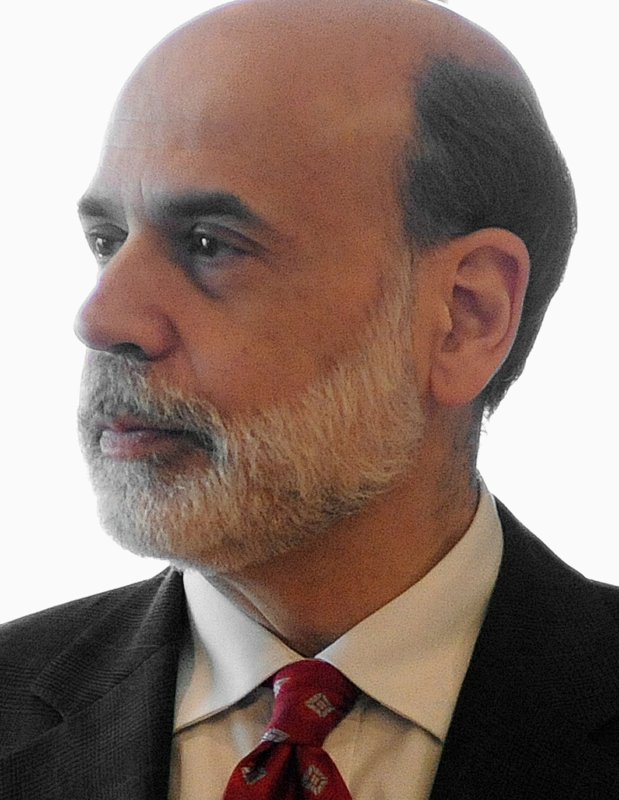U.S. Federal Reserve Chairman Ben Bernanke, once faulted for being slow to address market fears, will now explain the central bank's growing interventionism.
He will deliver his semiannual testimony on the Fed's U.S. economic outlook and monetary policy before the House Financial Services Committee Tuesday and the Senate Banking Committee Wednesday.
But he'll also face questions about Fed transparency and the central bank's expanding regulatory power, lawmakers say.
The Fed "went too far in bailing out companies and exposing taxpayers" to the costs, said Sen. Richard Shelby, R-Ala. "They utterly failed the American people as a bank regulator."
Bernanke, who has presided over some of the most interventionist and controversial Fed actions since the central bank's founding in 1913, has defended his management of the economic crisis.
"I don't regret anything we've done," he told The Wall Street Journal.
"If the Fed and the (U.S.) Treasury (Department) hadn't acted" as they did, "then the global economic environment would have been much, much worse than it is today," he said. "There would have been some risk of a 1930s-style Great Depression. We averted that."
In fact, Bernanke argues for expanding the Fed's regulatory powers.
He claims more authority would help his quasi-public corporation act more decisively so similar crises don't recur, The New York Times reported.
U.S. President Barack Obama proposes giving the Fed new powers to oversee financial institutions -- but wants to limit its authority to make emergency loans such as the American International Group Inc. bailout.
Bernanke says he agrees the $180 billion AIG rescue package on top of $150 billion in government loans, stock purchases and buying up of toxic AIG assets should require White House approval.
He does not like that Congress and the White House also want to review the Fed's structure, especially the 12 regional Fed banks that influence interest-rate decisions and bank regulation, the Journal said.
The regional banks' boards are composed in part of private bankers.
"There's a definite conflict of interest when the banks are involved in selecting their regulators," said Shelby, the Senate Banking Committee's senior Republican member.
He especially does not like a proposal from Rep. Ron Paul, R-Texas, for the U.S. Government Accountability Office to audit the central bank like it audits the Central Intelligence Agency and National Security Agency, the Journal said.
While the GAO already audits the Fed's bank regulation, Paul's bill opens the Fed to scrutiny of its interest-rate decisions and trading with other central banks.
Paul, who gained widespread attention during his unsuccessful 2008 run for president, says a "natural consequence" of an audit would be that the public "would be so outraged" by the findings that they would decide to kill the institution entirely, the Journal said.
Bernanke, whose Fed chairmanship term ends in January, may or may not see some outrage when he takes his case to the public this weekend.
He goes before a TV audience in Kansas City, Mo., Sunday in a "town hall" meeting hosted by Jim Lehrer of "The NewsHour with Jim Lehrer."
Lehrer and the audience will question Bernanke about "how the central bank has responded to the financial crisis and its changing role on the road to economic recovery," the Public Broadcasting Service said.
The forum will be broadcast on "NewsHour" over three days next week.
Overseas markets were largely up Tuesday as investors awaited Bernanke's day on Capitol Hill.
Japan's Nikkei 225 added 256.70 points, or 2.73 percent, to close at 9,652.02 after a long holiday weekend. China's Shanghai Composite Index closed down 53.71 points, or 1.64 percent, at 3,213.21. Hong Kong's Hang Seng Index finished essentially flat, down 0.64, or zero percent, at 19,501.73
In London, the FTSE 100 was up 26.26 points, or 0.59 percent, to 4,469.88 in early afternoon trading. Germany's DAX index was up 41.14 points, or 0.82 percent, to 5,071.29. France's CAC-40 benchmark was up 24.24, or 0.84 percent, to 3,295.18.










